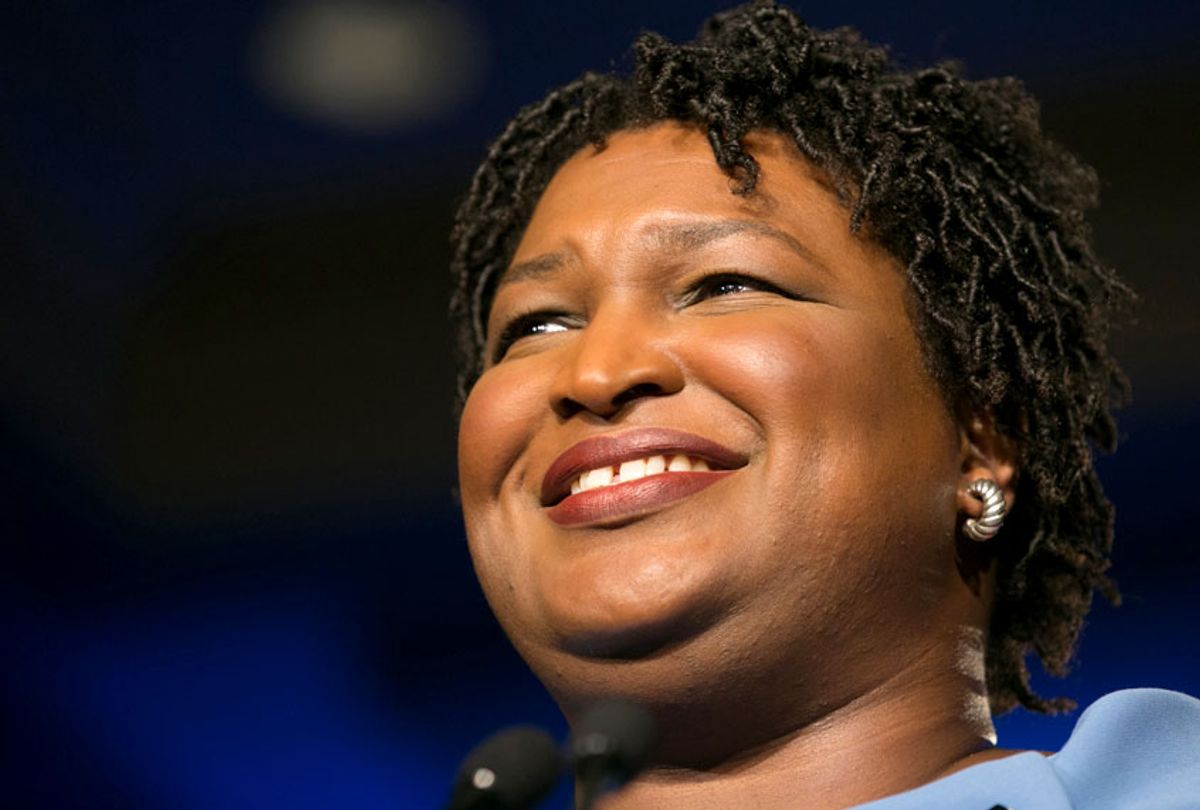Stacey Abrams is preparing to ask for a new election to be called in her contested Georgia governor's race, under a state law that allows losing candidates to challenge election results based on “misconduct, fraud or irregularities ... sufficient to change or place in doubt the results.”
Top Abrams advisers revealed the plan to the Associated Press but said no final decision has been made. That will likely change once Republican Brian Kemp is certified as the election winner, which is expected to occur as soon as Friday night.
Abrams campaign chief Allegra Lawrence-Hardy and their team of nearly three dozen lawyers plan to draft a petition and collect affidavits from voters or would-be voters who believe they were disenfranchised from participating tin the election. The campaign would then decide whether to challenge the election results in state court, though Lawrence-Hardy added that the legal team is “considering all options,” including asking federal courts to intervene.
The AP notes that a state challenge would be “unprecedented” and “drastic” and legal experts say the law has a “high bar” to meet in order for the court to intervene.
Kemp leads Abrams by more than 50,000 votes out of more than 3.9 million cast, although he is only about 18,000 votes above a threshold that would trigger an automatic runoff election. In order for a challenge to be successful, Abrams' team would need to show that there were enough irregularities that at least 18,000 voters were improperly barred from voting or had their ballots rejected.
In the years leading up to the election, Kemp, as Georgia's secretary of state, purged more than 550,000 people from the state's rolls. Investigative journalist Greg Palast has found that more than 340,000 of them were wrongly removed with no notice.
Kemp's campaign accused Abrams of pushing a “publicity stunt” and dismissed her refusal to concede the race as a “ridiculous temper tantrum.”
Lawrence-Hardy, a lawyer who was part of the legal team in the 2000 Bush v. Gore case, told the AP that the campaign received many reports of voters who don't regularly turn out to vote, but came out to support Abrams on Election Day and “ran into barriers.”
“These stories to me are such that they have to be addressed,” she said. “It’s just a much bigger responsibility. I feel like our mandate has blossomed. ... Maybe this is our moment.”
Abrams' legal team has worked since the election to record any reported voting problems by her supporters in an attempt to build their case. The team also collected affidavits from poll workers who reported long lines that may have dissuaded many from voting, voters not being offered provisional ballots in apparent violation of federal law, and malfunctioning equipment.
Lawrence-Hardy said that while the team does not have a list of 18,000 disenfranchised voters, the campaign would show “hundreds, if not thousands” of examples of voters being disenfranchised, as well as projected votes lost due to other problems.
Under the law, Abrams would have to file a challenge within five days of the election certification in a county trial court, where the case could play out for over a month, well beyond the Dec. 4 date set for a potential runoff election.
Former Georgia Secretary of State Cathy Cox, a Democrat, warned that Abrams' legal team has a steep hill to climb.
“I would say with pretty great confidence there has probably never been an election ... without some irregularity, where some poll worker did not make some mistake,” she told the AP. She explained that a judge calling for a new election would be a “real extreme remedy,” saying that a more “surgical” plan would be to have the irregularities affirmed in order to have the certified results reopened, remedied and recertified, at which point a judge could order a runoff if the race were then close enough.
A similar case played out in New Hampshire in 1974, albeit for different reasons. The closest election in Senate history saw Republican Louis Wyman leading Democrat John Durkin by just 355 votes. After a recount, Durkin was named the winner – by all of 10 votes. Wyman called for another recount, which was granted, and he gained a two-vote lead in the race. After the Senate was unable to figure out a solution, both candidates agreed to hold another election, which Durkin won by 27,000 votes.



Shares